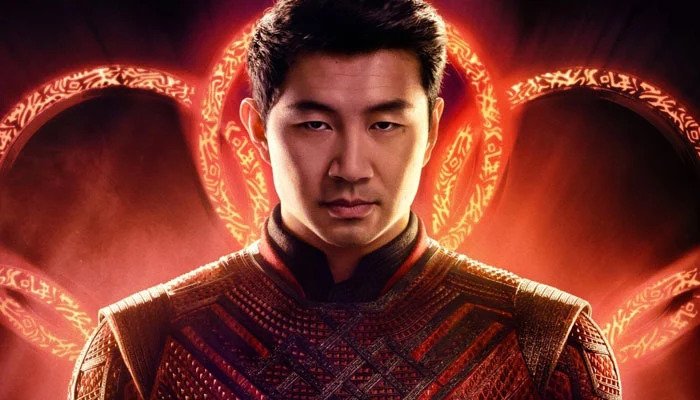Resurfaced Simu Liu interview spurs nationalist backlash against ‘Shang-Chi’
Marvel's efforts to get 'Shang-Chi' onto screens in mainland China may have just hit another snag.

Marvel Studios’ latest film, Shang-Chi and the Legend of the Ten Rings, has proven to be a big hit in the wake of its September 3 debut, breaking the Labor Day Weekend box office record despite the constraints of the pandemic. Featuring Marvel’s first Asian superhero, played by Chinese-Canadian actor Simu Liu, the film’s success combined with its predominantly Asian cast is being seen as an important milestone for Asian-American representation on screen.
But there’s no release date in sight for Shang-Chi in China, a market that has traditionally been a big part of Marvel’s box office ambitions. Perhaps we shouldn’t be surprised. Reaction to the film on Chinese social media has been mixed since the beginning of Shang-Chi’s production cycle.
In August, Marvel president Kevin Feige personally addressed some of the most prominent Chinese criticisms. He recognized that Chinese viewers took issue with the main villain in the original comic published in 1972. Known as Fu Manchu, the character exemplified anti-Asian stereotypes based on racist notions associated with “Yellow Peril,” and accordingly generated considerable controversy. However, Feige reiterated that the character is not present in the film and that it was replaced with the intention to dispel such harmful caricatures.
He also addressed another prominent Chinese criticism that accused Simu Liu and his co-star Awkwafina of not being good-looking enough for their roles. At the time of the casting announcements, many Chinese netizens felt that the duo’s “stereotypical features” of “square faces and small eyes” conformed to “condescending Western perceptions” of Chinese people. Feige explained that Marvel wanted to go for a more unknown actor for the lead role and urged viewers to reserve their judgements until watching the movie.
However, it seems more and more unlikely that Shang-Chi will receive approval in China, particularly if the latest controversy gathers more steam. On Wednesday, nationalist accounts on Weibo posted images of an interview that Liu conducted with the CBC in 2017 as part of a series that invited Canadians to share what the country meant to them in honor of Canada 150. In the interview, Liu talks about his parents’ experiences growing up in China, where they heard “stories of people dying from starvation,” and many lived in “Third World” conditions. He then expressed how grateful he is to Canada for giving his family a chance at a better life as immigrants.
The interview inflamed existing nationalist grievances against Shang-Chi for its supposed undertones of “insulting China” (辱华 rǔ huá). In a domestic sociopolitical climate that emphasizes China’s rising place in the world and a distinct sense of renewed national self-confidence, Liu’s comments were seen by some as an attempt by foreign media to “smear China” with negative coverage. Moreover, the notion of Chinese immigrants leaving the country and celebrating the better life they enjoy elsewhere is becoming increasingly frowned upon in popular discourse as being unpatriotic.
“If they allow the movie to screen in China after this, I will be extremely surprised,” reads one Weibo comment. Another user wrote, “So apparently we’re a Third World country that can’t even afford to eat, but you still want to make money in China?”
In the eyes of nationalist commentators, the resurfaced interview seems to confirm some of the domestic accusations against Shang-Chi of projecting Western “prejudices and stereotypes” onto a story depicting China in an unflattering way, exemplified with the perceived casting problems. Some see Liu’s description of China as outdated and purposely done to further the agenda of Western media seeking to deny recognition of China’s economic achievements. Other comments point out that given Simu’s parents hail from Harbin in Northeast China, a region among the most developed in China during the early PRC, his claims are hard to believe.
China news, weekly.
Sign up for The China Project’s weekly newsletter, our free roundup of the most important China stories.
However, not all reacted with outrage. “I don’t see what’s wrong here. What he says is true. Many of those growing up in that era did suffer from starvation and poverty,” reads one Weibo comment. Others accused the nationalist bloggers of mistranslating Liu’s comments, making them seem harsher and more provocative in an attempt to stir up controversy.
The situation bears some resemblance to the nationalist backlash against Chloé Zhao earlier this year, after a two-year-old interview in which she criticized China made the rounds on Chinese social media. In this case, the reaction to Liu’s interview could exacerbate the preexisting controversy surrounding Shang-Chi in China. It just might torpedo Marvel’s ambitions of capitalizing on the film in the world’s largest market.





